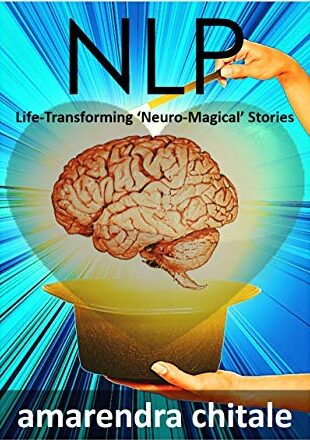
(Banner image Designed by Freepik)
We all think that our realities are the ultimately accurate realities. I have always said this to people who claim to be right about everything, “You have your reality, someone else has theirs, and then there is something called, ‘A CCTV camera’”. Our brain assumes a lot of things to be true. Some of these assumptions are good for us like, “I know I can do it”, or “One day I will be successful”. Such empowering assumptions about self and others help in elevating overall mood, hence the motivation leading to appropriate behaviour and communication. It is a no brainer to realize where this trail is heading to, a better quality of life. However, some assumptions about ourselves, others, and the future can hold us back. For example, “I will never get this right”, “I am a failure”, “Others have done this to me, it is not fair”, “Future is bleak” etc. The entire empowering trail falls apart. These are nothing but ‘Thinking Traps’ which are eating into your potential like termites.
The reality is, our realities about ourselves, others (the world), and the future are often inaccurate. We create these realities through our perceptions and our perceptions are based on various factors such as our past experiences, past decisions, memory, upbringing, values, beliefs etc. As a result, we tend to derive our own meaning out of everything we experience. In the process, we tend to generalize and distort reality, making it ‘impure’. These ‘impure’ mental derivations and assumptions are called ‘Cognitive Distortions’. For simplicity, we may call it distorted thinking.
People who are generally sad, under confident, often angry, nervous, hurtful towards others, tend to assume self-destructive things. This can also lead to mental disorders like anxiety, depression, obsessive compulsive disorder, post-traumatic stress disorders, substance abuse, etc. If we change our way of thinking, we change our emotions. There are generally 12 types of ‘Thinking Traps’ or distorted thinking which are given below, along with their ‘untwisting counters’ as described and taught in NLP.
Always being Right: “Needing to prove you’re right, even if it hurts others”.
Counter: Everyone has their model of the world, respect others’ way of thinking even if you may not agree. People have their own way of thinking, so it is okay if you don’t agree. Consider others’ views by listening to understand than to reply. It is better to understand than just be right.
Black & White Thinking: “Seeing things as completely good or bad, with no middle ground”.
Counter: Life is full of gray areas. Try to see the nuances. You might not be good at something, but that doesn’t mean you are the worst person in the world. If someone can do something, everyone can learn to do it. If you don’t achieve the best, doesn’t mean you are the worst. Appreciate what you have achieved in the process, instead of totally downgrading yourself.
Catastrophizing: “Automatically expecting the worst-case scenario to happen”.
Counter: Ask yourself for evidence that supports your thinking. You will not find any. Then ask yourself, what is more likely to happen.
Emotional Reasoning: “Believing your emotions or feelings are facts, leading to poor choices”.
Counter: Feelings are just signals. You have the power to choose how to respond to them.
Fallacy of change: “Thinking others must change for you to be happy”.
Counter: The fact is, we have no control over anything completely except our mind and our body. People have the right to behave the way they want to behave. The only person you can control is yourself. Focus there.
Filtering: “Focusing only on the negatives and ignoring the positives”.
Counter: Balance your view. Look for the good too. There is nothing in this world completely positive or completely negative.
Fortune Telling: “Believing you can predict the future, usually for the worse”.
Counter: No one can predict the future. Focus on the present instead. Practice mindfulness.
Jumping to conclusions: “Making quick judgements without enough facts, often negatively”.
Counter: Slow down. Get more information before reaching conclusions.
Mind Reading: “Assuming you know what others are thinking, usually negative”.
Counter: You can’t read minds. Ask for feedback if needed.
Overgeneralization: “Seeing a single bad event as a never-ending pattern of defeat”.
Counter: One event doesn’t define everything. Look for exceptions.
Personalization: “Believing you are the sole cause of every problem you encounter”.
Counter: You are not the only one involved. Other people and factors play a role too.
‘Should’ Statements: “Holding rigid rules about how you or others should behave”.
Counter: Think in terms of ‘could’, not ‘should’.
These are generally the Distorted Thinking Patterns which disturb our Emotional state, along with how you can counter them. Some more NLP tips are given below:
- Reframe your thinking: Turn negatives into positives, and doubts into seeking information and action.
- Pause and Reflect: Before reacting, take a deep breath and think. Give it 90 seconds and let the intensity of emotions come down.
- Break it down: If you have big problems, deal with them step by step. Eat the elephant one piece at a time.
- Prove yourself wrong: If you think you will fail, do it anyway. You will surprise yourself.
- Ask for evidence: Talk to someone or look for evidence to clear your mind.
- Stay in present: Worry less about the future. Focus on the now.









